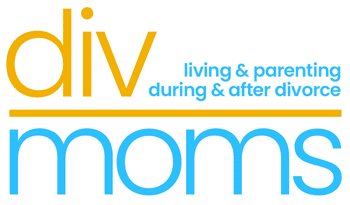Navigating through a divorce can be one of life’s most challenging experiences, particularly for moms adjusting to a new normal.
As a recently divorced mom (or one going through the process), embracing mental wellness through professional advice and support is a crucial part of your healing and growth process. Let’s explore the multifaceted benefits of mental health support during this transformative time.
Why mental health help is so important for divorced moms
Finding a safe space for expression: A mental health professional provides a confidential and safe space to express and process complex emotions like grief, anger, and confusion, which are common post-divorce.
Developing healthy coping mechanisms: Professionals can equip you with effective strategies to manage stress, anxiety, and other emotional challenges, smoothing the transition into your new life phase.
Feeling understood and supported: Mental health support offers understanding and solidarity. Knowing you’re not alone in your experiences can be incredibly reassuring.
Gaining new perspectives: Counseling can provide fresh insights into your relationships and experiences, fostering a clearer understanding of your personal journey and growth.
Support in parenting and co-parenting: As a newly single mom, unique parenting challenges will arise. Mental health professionals can offer guidance on communicating with your children, managing co-parenting effectively, and addressing shared custody issues.
Boosting confidence and self-worth: Post-divorce life can impact your self-esteem. Mental health support is instrumental in rebuilding your sense of self-worth and confidence.
Help in setting future goals: Counseling can assist you in setting realistic and positive goals for the future, both for yourself and your family.
Connecting with support groups: Community centers, religious organizations, and local health clinics often host support groups for divorced individuals. These groups offer a space to share experiences and learn from others.
Online communities: Websites and forums specifically for divorced parents can offer support and advice. Platforms like DivorceCare or Single Mom Nation provide resources and community connections.
How to find expert advice and therapists
Finding the right therapist may take time, and it’s important to find someone who is a good fit for your family’s specific needs. Don’t hesitate to ask potential therapists about their experience with issues related to divorce and shared custody.
Look for licensed professionals specializing in divorce, family therapy, or individual counseling. Websites like Psychology Today offer directories to find therapists in your area.
- Check with your insurance provider: Many plans cover mental health services, including family therapy.
- Healthcare providers: Your primary care physician can also be a resource for mental health referrals.
- Local mental health associations: Organizations like the American Psychological Association (APA) or AAMFT offer directories of licensed therapists.
- School counselors or pediatricians: They often have connections with family therapists.
- Online therapy platforms: Platforms like Betterhelp or Talkspace provide access to licensed therapists with flexible scheduling.
- Community centers or religious organizations: These can offer counseling services or referrals.
- Referrals from friends or family: Personal referrals can be a valuable resource.
- Legal aid services: If working with a lawyer for your divorce or custody arrangements, they might have therapist contacts.
- Books and podcasts: There are numerous books and podcasts on coping with divorce and rebuilding after significant life changes. These can be both educational and comforting.
- University psychology clinics: Many offer therapy at reduced costs, provided by graduate students supervised by licensed professionals.
- Support groups for single or divorced parents: These can be a great way to get recommendations for therapists familiar with shared custody issues.
You’re taking steps towards healing and empowerment
For newly divorced moms, seeking mental health advice is a step towards healing, empowerment, and rediscovery. It involves caring for your mental and emotional well-being, which is as crucial as your physical health.
Prioritizing your mental health is a sign of strength, not weakness, and sets a positive example for your children about the importance of self-care and emotional resilience. Remember, this journey is about more than adjusting to a new lifestyle — it’s about thriving in your new role with confidence and grace.
- Murray PsyD, Jill (Author)
- English (Publication Language)
- 328 Pages - 08/21/2017 (Publication Date) - iUniverse (Publisher)
- Landers, Jeffrey A. (Author)
- English (Publication Language)
- 213 Pages - 09/22/2012 (Publication Date) - Sourced Media Books (Publisher)
- Publishing, Gheleme (Author)
- English (Publication Language)
- 42 Pages - 08/18/2022 (Publication Date) - Independently published (Publisher)


















